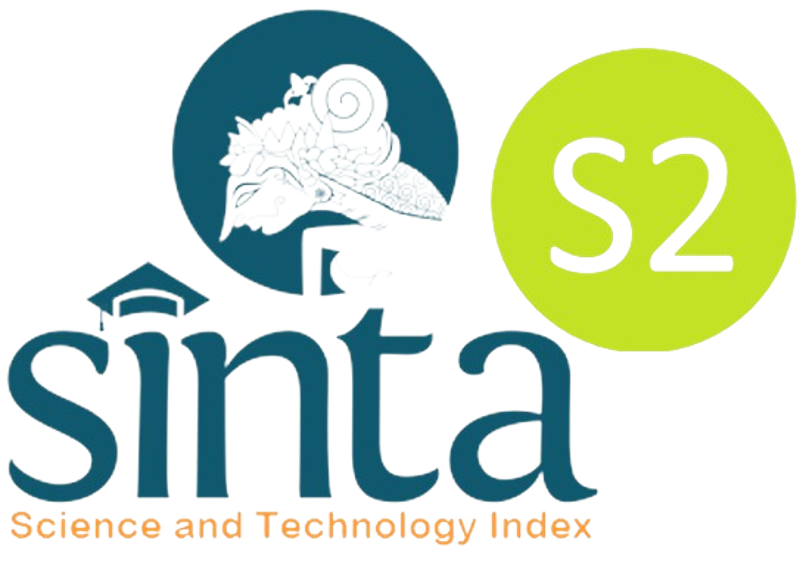Danielson Teaching Framework as Game Changer for Teaching Fiqh Muamalat: A Way Forward
Abstract
Abstract: Danielson Teaching Framework as Game Changer for Teaching Fiqh Muamalat: A Way Forward. Objective: This research examined the effectiveness of Danielson teaching framework to evaluate Fiqh Muamalats teaching classes across 3 higher learning institutions in Kelantan. The framework covered 4 aspects of teaching a) planning and preparation, b)classroom environment, c) instruction, and d) professional responsibilities. Methods: Across these 4 aspects of teaching, 44 items was used to collect data from 313 students. To answer the survey, the quantitative descriptive and correlational design were employed. Findings: Research findings indicate that the construct mean for (a) planning and preparation is 2.06, (b) classroom environment is 2.75, (c) instruction is 2.64, and (d) professional responsibilities is 1.97. Conclusion: DTF can be used as a good teaching evaluation framework to see teachers’ effectiveness because of its comprehensiveness and coverage. Also, based on the DTF dimensions, more improvements and studies should be conducted to ensure students’ success, in relation to understand complicated content like Fiqh Muamalat.
Keywords: Danielson teaching framework, fiqh muamalat, Islamic education, pedagogy, teaching supervision.
Abstrak: Kerangka Pengajaran Danielson sebagai Game Changer untuk Pengajaran Fiqih Muamalat: Suatu Langkah Kedepan. Tujuan: Penelitian ini menguji efektivitas Kerangka Pengajaran Danielson untuk mengevaluasi Pengajaran Fiqh Muamalat di 3 perguruan tinggi di Kelantan. Kerangka tersebut mencakup 4 aspek pengajaran a) perencanaan dan persiapan, b) lingkungan kelas, c) pengajaran, dan d) tanggung jawab profesional. Metode: Dari 4 aspek pengajaran ini, 44 item digunakan untuk mengumpulkan data dari 313 siswa. Untuk menjawab survei, desain kuantitatif deskriptif dan korelasional digunakan. Temuan: Hasil penelitian menunjukkan bahwa rata-rata konstruk untuk (a) perencanaan dan persiapan adalah 2,06, (b) lingkungan kelas adalah 2,75, (c) pengajaran adalah 2,64, dan (d) tanggung jawab profesional adalah 1,97. Kesimpulan: DTF dapat digunakan sebagai kerangka evaluasi pengajaran yang baik untuk melihat efektivitas guru karena kelengkapan dan cakupannya. Juga, berdasarkan dimensi DTF, lebih banyak perbaikan dan studi harus dilakukan untuk memastikan keberhasilan siswa, terkait dengan pemahaman konten yang rumit seperti Fiqih Muamalat.
Kata kunci: kerangka pengajaran Danielson, fiqih muamalat, pendidikan Islam, pedagogi, supervisi pengajaran.
Full Text:
PDFReferences
Bouchee, T., de Putter-Smits, Thurlings, M., Pepin, B (2021). Towards a better understanding of conceptual difficulties in introductory quantum physics course. Studies in Science Education.
Bulotsky-Shearer, R. J,. Fernandez., Dominguez, X., & Rouse, H .L. (2011). Behavior problems in learning activities and social interactions in Head Start classrooms and early reading, mathematics, and approaches to learning. School Psychology Review, 40 (1), 39-56
Chin,C. ( 2007). “Teacher questioning in science classrooms: Approaches that stimulate productive thinking.” Journal of Research in Science Teaching: The official Journal of the National Association for Research in Science Teaching 44, no. 6 (2007): 815-843
Cohen, D.K., & Ball, D.L. (2001). Making change: Instruction and its improvement. Phi Delta Kappan, 83 (1), 73-77
Danielson, C. (2015). Framing discussions about teaching. Educational Leadership, 72(7), 38-41.
Evans, B. R., Wills, F., & Moretti, M. (2015). Editor and Section Editor's Perspective Article: A Look at the Danielson Framework for Teacher Evaluation. Journal of the National Association for Alternative Certification, 10(1), 21-26.
Ford, J. (2021). Utilizing Technology as a Means of Teacher Professionalism.
Gil, A. J., Garcia- Alcaraz, J. L., Mataveli, M. (2021). The effect of learning culture on training transfer; empirical evidence in Spanish teachers. The International Journal of Human Resource Management, 32(5), 1038-1061.
Ishak, M.S.I. and Asni, F. (2020), “ The role of maqasid al Shariah in applying fiqh muamalat into modern Islamic banking in Malaysia”, Journal of Islamic Accounting and Business Research, Vol. 11 No. 9 pp. 2137-2154
Mohd Ali, N.A., Shafii, Z. and Shahimi, S. (2020). “Competency mode for shariah auditors in Islamic Banks”, Journal of Islamic Accounting and Business Research, Vol. 11 No 2, pp. 377-399
Morris, P., & Morris, E. (2001). Becoming civil in Hong Kong: A tale of two schools. International Journal of Educational Research, 35(1), 11-27
Morris-Mathews, H., Stark, K. R., Jones, N. D., Brownell, M. T., & Bell, C. A. (2021). Danielson’s Framework for Teaching: Convergence and divergence with conceptions of effectiveness in special education. Journal of Learning Disabilities, 54(1), 66-78.
Muhammad, H. (2020). “Holistic Practice of Fiqh al Muamalat: Halal Accountability of Islamic Microfinance Institutions”. Nusantara Halal Journal, Vol. 1 NO. 1 pp 22-31.
Seibel, H.D. (2008). Islamic microfinance in Indonesia: The challenge of institutional diversity,regulation, and supervision.” SOJOURN: Journal of Social Issues in Southeast Asia 23 no 1 (2008): 88-103.
Shahwan, S., Shafii, Z., Salleh, S., Ibrahim, N., Arif, H.M., Alwi, K., Sapian, S.M. (2015). An experiment on Shariah based Personal Financial Transactions Using a Business game, International Journal of Business, Economics and Law, *, 61-66.
Refbacks
- There are currently no refbacks.
Copyright (c) 2023 Jurnal Pendidikan Progresif

This work is licensed under a Creative Commons Attribution-ShareAlike 4.0 International License.
View My Stats

The copyright is reserved to The Jurnal Pendidikan Progresif that is licensed under a Creative Commons Attribution-ShareAlike 4.0 International License.





